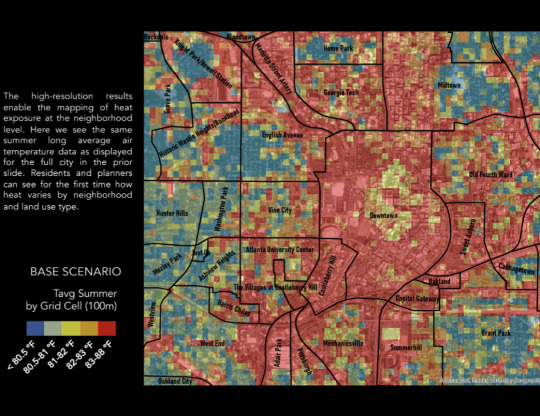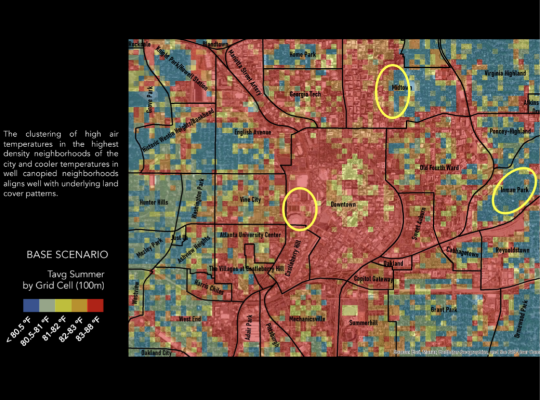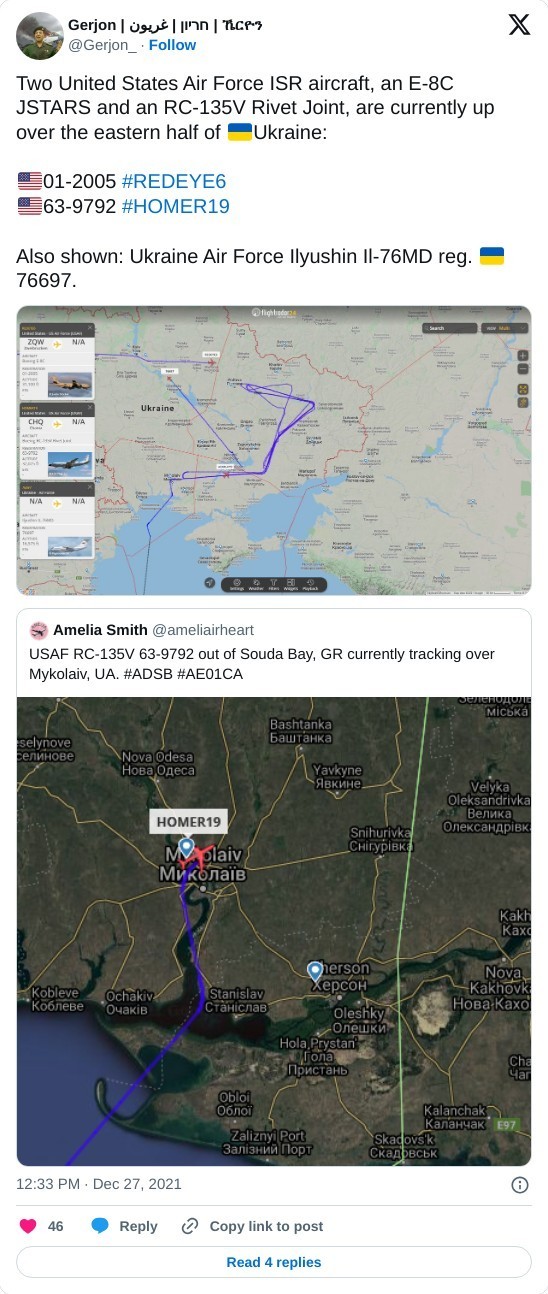#Program Management Support Georgia
Explore tagged Tumblr posts
Text
Things Biden and the Democrats did, this week #26
July 5-12 2024
The IRS announced it had managed to collect $1 billion in back taxes from high-wealth tax cheats. The program focused on persons with more than $1 million in yearly income who owned more than $250,000 in unpaid taxes. Thanks to money in Biden's 2022 Inflation Reduction Act the IRS is able to undertake more enforcement against rich tax cheats after years of Republicans cutting the agency's budget, which they hope to do again if they win power again.
The Biden administration announced a $244 million dollar investment in the federal government’s registered apprenticeship program. This marks the largest investment in the program's history with grants going out to 52 programs in 32 states. The President is focused on getting well paying blue collar opportunities to people and more people are taking part in the apprenticeship program than ever before. Republican pledge to cut it, even as employers struggle to find qualified workers.
The Department of Transportation announced the largest single project in the department's history, $11 billion dollars in grants for the The Hudson River Tunnel. Part of the $66 billion the Biden Administration has invested in our rail system the tunnel, the most complex Infrastructure project in the nation would link New York and New Jersey by rail under the Hudson. Once finished it's believed it'll impact 20% of the American economy by improving and speeding connection throughout the Northeast.
The Department of Energy announced $1.7 billion to save auto worker's jobs and convert factories to electronic vehicles. The Biden administration will used the money to save or reopen factories in Michigan, Ohio, Pennsylvania, Georgia, Illinois, Indiana, Maryland, and Virginia and retool them to make electric cars. The project will save 15,000 skilled union worker jobs, and created 2,900 new high-quality jobs.
The Department of Housing and Urban Development reached a settlement with The Appraisal Foundation over racial discrimination. TAF is the organization responsible for setting standards and qualifications for real estate appraisers. The Bureau of Labor Statistics last year found that TAF was 94.7% White and 0.6% Black, making it the least racially diverse of the 800 occupations surveyed. Black and Latino home owners are far more likely to have their houses under valued than whites. Under the settlement with HUD TAF will have to take serious steps to increase diversity and remove structural barriers to diversity.
The Department of Justice disrupted an effort by the Russian government to influence public opinion through AI bots. The DoJ shut down nearly 1,000 twitter accounts that were linked to a Russian Bot farm. The bots used AI technology to not only generate tweets but also AI image faces for profile pictures. The effort seemed focused on boosting support for Russia's war against Ukraine and spread negative stories/impressions about Ukraine.
The Department of Transportation announces $1.5 billion to help local authorities buy made in America buses. 80% of the funding will go toward zero or low-emission technology, a part of the President's goal of reaching zero emissions by 2050. This is part of the $5 billion the DOT has spent over the last 3 years replacing aging buses with new cleaner technology.
President Biden with Canadian Prime Minster Justin Trudeau and Finnish President Alexander Stubb signed a new agreement on the arctic. The new trilateral agreement between the 3 NATO partners, known as the ICE Pact, will boost production of ice breaking ships, the 3 plan to build as many as 90 between them in the coming years. The alliance hopes to be a counter weight to China's current dominance in the ice breaker market and help western allies respond to Russia's aggressive push into the arctic waters.
The Department of Transportation announced $1.1 billion for greater rail safety. The program seeks to, where ever possible, eliminate rail crossings, thus removing the dangers and inconvenience to communities divided by rail lines. It will also help update and improve safety measures at rail crossings.
The Department of the Interior announced $120 million to help tribal communities prepare for climate disasters. This funding is part of half a billion dollars the Biden administration has spent to help tribes build climate resilience, which itself is part of a $50 billion dollar effort to build climate resilience across the nation. This funding will help support drought measures, wildland fire mitigation, community-driven relocation, managed retreat, protect-in-place efforts, and ocean and coastal management.
The USDA announced $100 million in additional funds to help feed low income kids over the summer. Known as "SUN Bucks" or "Summer EBT" the new Biden program grants the families of kids who qualify for free meals at school $120 dollars pre-child for groceries. This comes on top of the traditional SUN Meals program which offers school meals to qualifying children over the summer, as well as the new under President Biden SUN Meals To-Go program which is now offering delivery of meals to low-income children in rural areas. This grant is meant to help local governments build up the Infrastructure to support and distribute SUN Bucks. If fully implemented SUN Bucks could help 30 million kids, but many Republican governors have refused the funding.
USAID announced its giving $100 million to the UN World Food Program to deliver urgently needed food assistance in Gaza. This will bring the total humanitarian aid given by the US to the Palestinian people since the war started in October 2023 to $774 million, the single largest donor nation. President Biden at his press conference last night said that Israel and Hamas have agreed in principle to a ceasefire deal that will end the war and release the hostages. US negotiators are working to close the final gaps between the two sides and end the war.
The Senate confirmed Nancy Maldonado to serve as a Judge on the Seventh Circuit Court of Appeals. Judge Maldonado is the 202nd federal Judge appointed by President Biden to be confirmed. She will the first Latino judge to ever serve on the 7th Circuit which covers Illinois, Indiana, and Wisconsin.
Bonus: At the NATO summit in Washington DC President Biden joined 32 allies in the Ukraine compact. Allies from Japan to Iceland confirmed their support for Ukraine and deepening their commitments to building Ukraine's forces and keeping a free and Democratic Ukraine in the face of Russian aggression. World leaders such as British Prime Minster Keir Starmer, German Chancellor Olaf Scholz, French President Emmanuel Macron, and Ukrainian President Volodymyr Zelenskyy, praised President Biden's experience and leadership during the NATO summit
#Joe Biden#Thanks Biden#politics#us politics#american politics#election 2024#tax the rich#climate change#climate action#food insecurity#poverty#NATO#Ukraine#Gaza#Russia#Russian interference
3K notes
·
View notes
Text
HURRICANE HELENE RELIEF
Since I'm incredibly anxious and very much annoyed, I'm compiling this post as a sort of master list of relief organizations and individual fundraisers for those in the path of Hurricane Helene.
Many of the links I post on this won't be individuals, but I encourage those within the path to add their links to this post in reblogs! Likewise, if you have any organizations / volunteer / grassroots efforts y'all would like to share, please do so!
LAST EDITED: 9/29/2024 - MAKE SURE TO CHECK REBLOGS FOR UPDATES!
My list is particularly focused on widely accessible resources, as well as Florida specific resources since... I'm from Florida.
(INTER)NATIONAL ORGANIZATIONS
American Red Cross - The American Red Cross is on the ground helping people as Hurricane Helene approaches land as a very dangerous storm. Helene may produce winds over 150 mph, a massive 20-foot-high storm surge and as much as a foot of rain. Prolonged power outages and tornadoes may occur. The effects will be felt hundreds of miles inland including in Georgia and the Carolinas.
FEMA Disaster Assistance Improvement Program - The Disaster Assistance Improvement Program’s (DAIP) mission is to provide disaster survivors with information, support, services, and a means to access and apply for disaster assistance through joint data-sharing efforts between federal, tribal, state, local, and private sector partners.
Roll Mobility - An application that equips wheelchair users with reliable information about the accessibility of restaurants, public spaces, businesses, trails, and parking areas. Good information to have on hand, especially for those evacuating from their home areas.
Warmline Directory - Providing extensive yet accessible resources that empower individuals to find the mental health and wellness resources they need through a directory containing accurate and in-depth information. For those unfamiliar: Unlike a crisis line, a warm line operator is unlikely to call the police or have someone locked up if they talk about suicidal or self-harming thoughts or behaviors. A good resource for individuals in mental distress due to natural disaster circumstances.
Food Not Bombs - Recovers food that would have been discarded and share it as a way of protesting war and poverty. They also reduce food waste and meet the direct need of communities by collecting discarded food, preparing vegan meals that they share with the hungry while providing literature about the need to change our society. Food Not Bombs also provides food to protesters and striking workers and organizes food relief after natural and political crisis.
Partnership for Inclusive Disaster Strategies - The Partnership for Inclusive Disaster Strategies (The Partnership) is the only U.S. disability-led, 501(c)(3) organization that prioritizes equity, access, disability rights, disability justice, and full inclusion of people with disabilities, older adults, and people with access and functional needs before, during and after disasters and emergencies.
FLORIDA
Volunteer Florida Disaster Fund - The Florida Disaster Fund is the State of Florida’s official private fund established to assist Florida’s communities as they respond to and recover during times of emergency or disaster. In partnership with the public sector, private sector and other non-governmental organizations, the Florida Disaster Fund supports response and recovery activities.
State and Local Level Referrals - When a disaster occurs, local governments often work together with community leaders and organizations to provide on-the-ground emergency management. Curated by FEMA. (Has 52 Organizations Listed)
GEORGIA
State and Local Level Referrals - When a disaster occurs, local governments often work together with community leaders and organizations to provide on-the-ground emergency management. Curated by FEMA. (Has 60 Organizations Listed)
TENNESSEE
State and Local Level Referrals - When a disaster occurs, local governments often work together with community leaders and organizations to provide on-the-ground emergency management. Curated by FEMA. (Has 49 Organizations Listed)
NORTH CAROLINA
State and Local Level Referrals - When a disaster occurs, local governments often work together with community leaders and organizations to provide on-the-ground emergency management. Curated by FEMA. (Has 45 Organizations Listed)
Beloved Asheville - A community-led coalition dedicated to providing home, healthy, equity, and opportunity for all.
Triangle NC - This links to another post I've made, but Triangle Mutual Aid is organizing supply drop offs as well as financial support.
SOUTH CAROLINA
State and Local Level Referrals - When a disaster occurs, local governments often work together with community leaders and organizations to provide on-the-ground emergency management. Curated by FEMA. (Has 44 Organizations Listed)
INDIVIDUAL FUNDRAISERS
Support a Resilient Family Seeking a New Home - LINK ; Tumblr @junpei-iori-ace-defective (Close Friend of the Affected) | Fundraiser Text Below:
My name is Adam. I'm not the best at this; I never thought I'd have to do this, but my family and I lost our home on September 26th due to the hurricane Helene here in Florida. No one in our area thought it would get bad, but we didn't have any rain. All of a sudden, the water rose, and by midnight, our home was flooded with three feet of water. I had to carry our pets to the neighbors and my disabled wife through five feet of water. Then, my elderly disabled mother and grandmother through the water. We lost all of our clothes and many of our belongings, and our landlord will be having us move out. We have nowhere to go, so today I'm asking for help from the kindness of the world. Anything can help. If I can get enough to get us into a new home, it would be a blessing. Thank you all, and God bless.
Help Rebuild Lives After Devastating Flash Flood - LINK ; Tumblr @undeadnecromancer (Close Friend of the Affected) | Fundraiser Text Below:
On September 27, after being trapped in a flash flood for 5 hours, my father, Jeffrey Fuller, and sister, Kayla Fuller, left with their lives ❤️ but lost everything else. My father had set his life up to be simple and enjoyable. He didn't have a lot extra, but he had everything he needed, and now all of that is gone. Unfortunately, he did not have flood insurance, and the older you get, the harder it is to bounce back from something like this. For a man who has always shown up for everyone he loves, he needs us to show up now. Please help my father rebuild.
If you have seen the video circulating around from Jeffrey Fuller where it looks like a river is going through his house and he ends it with a “Love you all,” you have seen what has brought on this devastation.
Hurricane Helene Aftermath Help - LINK ; Tumblr @moonenjoyer (Affected Individual) | Fundraiser Text Below:
Man I hate to do this but I'm in Valdosta, one of the cities hit the worse by Hurricane Helene. It's BAD here. In particular, there's no estimate of when we'll get power back. Word on the street is it could be a week or longer.
I work from home and going without power that long, I won't be making any money. Meanwhile my groceries are all spoiled in a fridge with no power and my car is on E. All the gas stations are down atm and when they're back up I KNOW gas prices are going to be crazy high because of all of this. In fact, EVERYTHING is going to be more expensive for a while because of this.
If you have anything to spare to help me with gas and groceries and just surviving this, I'd really appreciate it. If not, a reblog/share would mean a lot. Thank you ❤️
Save Nate and Amanda's First Home - Urgent Hurricane Needs - LINK ; Tumblr @luckyfirerabbit (Affected Individual) | Fundraiser Text Below:
Hi. I'm Porter Henderson. This isn't about me, though. You’re going to see a lot of fundraisers with Hurricane Helene. This might be a little different.
You see, I’m writing this on behalf of my landlords and friends, Nate and Amanda. The home we share with an additional disabled man in Lithonia, Georgia had some repairs that they couldn't afford, made much worse by the hurricane. They'd been limping along like everyone dealing with inflation and underemployment, but the situation has become urgent, and they need and deserve help.
Nate and Amanda have been my friends for over a decade, and when they heard I was no longer able to work and in a bad situation, they offered me a place in their first home. I told them I wasn’t sure what or when I would be able to pay. They told me that if I ever won my disability case I could start paying rent then.
You see, I'm trying so hard to save this home because they’ve tried so hard to save me.
I was so grateful to move in, and they treated me like family. When I lost the ability to drive, they made sure I got to my doctor’s appointments, and still do. When I can’t afford food, they take me to food banks, and what I can’t find there they’ll help me get at the store. They meet all the needs they could reasonably meet, and then a couple more.
I’ve lived here for three years now, and they’ve never stopped assuring me that I am wanted, even if I can’t contribute to the household on a daily basis. They have never let me go without if there was any other way. They have helped friends and strangers every time they have seen a need. They are unfailingly honest, incredibly trustworthy, and extremely hardworking people.
They've never had much, but they've shared everything they have.
Now, though, the hurricane turned a seem in our roof into a gushing waterfall, and finally into a large hole in Nate and Amanda's bedroom ceiling.
We tarped the leaking roof from the inside to channel out as much water as we could, but with a literal hurricane outside, there’s only so much that you can do.
The three of us who couldn’t get into the attic pushed our chronically ill bodies past their limits, dragging furniture away from walls, hauling totes as fast as we could with our canes, shoving empty containers into the corner as we kicked the debris out, and researching strategies for how to deal with the nightmare. Later we would wade through flooding water to dump out rain and tie down loose trash cans, shine lights and relay directions from the attic to outside, as we all attempted to get the water venting outside the house.
To make matters worse, the HVAC needs to be replaced. It’s a seventeen year old system, with a huge crack in the (inaccessible) drain pan and a bad motherboard. Some friends pooled money with Nate and Amanda to get a couple of window air conditioners for the summer. With medications that make three of us sensitive to heat, it’s been a rough summer, but we got through.
Unfortunately, winter is a few weeks away, and it’s going to be a little less than seventeen thousand for a new system to be installed.
What makes it an emergency however, is that without the drying and air movement of the AC, trying to dehumidify everything is going to be even harder, giving us a greater chance of mold. If mold takes hold, I'm not sure if we can save the house.
This fundraiser is for the $2,500 hurricane deductible that we're almost certainly going to be charged by the homeowner's policy and the $17,000 for the HVAC, plus estimated fees for the platform.
Not included in the total are any cleaning supplies, or a tiny storage unit and rental truck if we need one to store all of their bedroom furniture while the roof is redone. (We won't know about any of that until we get the estimate from insurance/roofing.) The claim has already been filed.
The air conditioning is a pre-existing problem, and I've found no way for it to be covered by any charity, government program, or private programs in the state. The ones that my social worker knew about didn't apply (I applied anyway) and I let her know about two more that I found. The religious groups I've reached out to in my area don't work in anything but clothing, children's furniture, and durable medical goods.
If additional costs emerge, or anything ends up being less expensive, I will update and adjust the goal accordingly as soon as I find out.
Please help these genuinely good people. The smallest donation helps. So does sharing.
Thank you in advance.
#txt#important#hurricane helene#mutual aid#florida#georgia#north carolina#south carolina#tennessee#long post#hurricane posting
1K notes
·
View notes
Text

The Stop Cop City movement has sought to prevent the expropriation of part of the Welaunee Forest for the development of an 85-acre police mega training center: a model town to prepare the state’s repressive arms for the urban warfare that will ensue when the contradictions of their exploitation and extraction become uncontainable, as they did in 2020 after the APD murdered Rayshard Brooks. That murder, and all those that came before, were the lodestars of the Black-led movement during the George Floyd uprisings; their demands were no less than the dismantlement of the entire carceral system. Unable to effectively manage or quell the popular street movements, the Atlanta Police Foundation set out to consolidate and expand their capabilities for surveillance, repression, imprisonment, armed violence, and forced disappearance. One result is Cop City, which has been racked by militant sabotage, land occupation, arson, and popular mobilizations, in an attempt to end the construction and return Atlanta to its people. As the Atlanta Police Foundation was unable to contain the 2020 Black rebellion, so too have they been unable to quell the resistance against Cop City. The press reports that the project is hemorrhaging money and is mired in delays and difficulties. For their part, the city, the state, and the federal government, have in turn employed every tool in their power to destroy the movement. Last week, the Georgia State Senate passed a bill to effectively criminalize bail funds in the state; RICO charges have been contorted to target networks of support and care that surround the fighters; and last January, APD assassinated the comrade Tortuguita in cold blood while they rested in their tent in the forest. It is clear that Stop Cop City represents one of the conjunctural spear tips for expanding the existing systems of counterinsurgency that span Africa, Asia, and the Arab world. Today the system’s belly rests atop Gaza, whose rumblings shake the earth upon which we walk. Through its Georgia International Law Enforcement Exchange (GILEE) program, the APD has sent hundreds of police to train with the Zionist occupation forces. And in October 2023, after Tufan al-Aqsa, the Atlanta Police Department engaged in hostage training inside abandoned hotels, putatively intended to “defeat Hamas,” in an advancement of tactics for the targeting of Black people. With every such expansion, the ability of counterinsurgency doctrines to counteract people’s liberation struggles grows. The purpose of counterinsurgency is to marshal state and para-state power into political, social, economic, psychological, and military warfare to overwhelm both militants and the popular cradle—the people—who support them. Its aim is to render us hopeless; to isolate and dispossess us and to break our will to resist it by any and all means necessary. This will continue apace, unless we fight to end it. Stop Cop City remains undeterred: on Friday, an APD cop car was burnt overnight in response to the police operation on February 8; yesterday, two trucks and trailers loaded with lumber were burnt to the ground. An anonymous statement claiming credit for the former, stated: “We wish to dispel any notion that people will take this latest wave of repression lying down, or that arresting alleged arsonists will deter future arsons.” As the U.S. government and Zionist entity set their sights on the Palestinian people sheltering in Rafah, as they continue their relentless genocide of our people in Khan Younis, Jabalia, Shuja’iyya, and Gaza City, the Stop Cop City movement has clearly articulated its solidarity with the Palestinian struggle. They have done so with consistency and discipline, and we have heard them. Our vision of freedom in this life and the next requires us to confront and challenge the entangled forces of oppression in Palestine and in Turtle Island, and to identify the sites of tension upon which these systems distill their forces. This week, as with the last three years, the forest defenders have presented us one such crucible.
(11 Feb 24)
National Lawyers Guild, Stop All Cop Cities: Lessons For a National Struggle (video, 1 hr 45 min)
1K notes
·
View notes
Text
Was reading a paper about the construction of Techwood and University homes in Atlanta (USA), two of the earliest public housing projects to come out of the "New Deal" programs, when the motivation the projects' leading promoter (real estate and property manager Charles F. Palmer) was discussed and I got an awesome reminder that Social Democracy is the moderate wing of Fascism
Palmer's promotion of public housing derived in part from his support for government intervention during the Great Depression. Firsthand research of government intervention in Benito Mussolini's Italy convinced him that massive public works and strong government control of the economy during a national emergency were necessary to save not only U.S. business, but, ironically, American democracy. The apparent efficiency of Mussolini's "Corporate State" proved to Palmer the efficacy of state-directed social reforms. Palmer shared a fascination for the Italian dictator's methods with many American businessmen during the 1930s. Strong central control by one man or a few men during an emergency seemed to be a safer middle road between the extremes of socialism and unrestrained laissez faire capitalism
Frank Ruechal (1997) New Deal Public Housing, Urban Poverty, and Jim Crow: Techwood and University Homes in Atlanta. The Georgia Historical Quarterly Volume 18 Issue 4
61 notes
·
View notes
Text
The US Department of Transportation has ordered states to kill their implementation plans related to the National Electric Vehicle Infrastructure program, according to a memo obtained by WIRED that was later made public. The decision appears to halt in its tracks a $5 billion program designed to fund state projects to install electric vehicle charging stations across the United States.
Officials at the Federal Highway Administration (FHWA), which manages the program, ordered state transportation directors to “decertify” the plans that all 50 states have used to outline where and how they will build their charging stations, and with what companies they’ll contract to do so. States have followed those plans to build more than 30 charging stations across the US, with hundreds more on the way.
Surveys show prospective car buyers cite the country’s lagging electric vehicle charging infrastructure as a major reason they won’t buy electric. The NEVI program, established by 2021’s Infrastructure Law, was the government’s answer to those concerns. It attempts to build chargers along thousands of miles of federal highway, with a focus on places that might not otherwise be able to financially support a charger.
The memo says transportation officials in President Donald Trump’s administration will write all new guidance for the program, which will then go through a public comment period. The timeline suggests work on the federally-funded electric vehicle charger network may be paused for months.
The order may be illegal. It could fly in face of court orders demanding the Trump administration “unfreeze” a funding pause that prevents federal money from flowing to state agencies. It may also violate the Administrative Procedures Act, which requires agencies to follow legal procedures before taking action.
“There is no legal basis for funds that have been apportioned to states to build projects being ‘decertified’ based on policy,” says Andrew Rogers, a former deputy administrator and chief counsel of the Federal Highway Administration.
The US DOT did not immediately respond to a request for comment.
It’s unclear how the DOT’s order will affect charging stations that are under construction. In the letter, FHWA officials write that “no new obligations may occur,” suggesting states may not sign new contracts with businesses even if those states have been allocated federal funding. The letter also says “reimbursement of existing obligations will be allowed” as the program goes through a review process, suggesting states may be allowed to pay back businesses that have already provided services.
Billions in federal funding have already been disbursed under the program. Money has gone to both red and blue states. Top funding recipients last year included Florida, New York, Texas, Georgia, and Ohio.
Tesla CEO Elon Musk has spent the last few weeks at the head of the federal so-called Department of Government Efficiency directing “audits” and cuts to federal spending. But his electric automobile company has been a recipient of $31 million in awards from the NEVI program, according to a database maintained by transportation officials, accounting for 6 percent of the money awarded so far.
The Trump administration has said that it plans to target electric vehicles and EV-related programs. An executive order signed by Trump on his first day in office purported to eliminate “the EV mandate,” though such a federal policy never existed.
NEVI projects have taken longer to get off the ground than other charging station construction because the federal government was deliberate in allocating funding to companies with track records, that could prove they could build or operate charging stations, says Ryan McKinnon, a spokesperson for Charge Ahead Partnership, a group of businesses and organizations that work in electric vehicle charging. If NEVI funding isn’t disbursed, “the businesses that have spent time or money investing in this program will be hurt,” he says.
14 notes
·
View notes
Text
Democracy Docket
Marc Elias
Thursday, February 6
THE OPPOSITION
Holding Trump Accountable
Trump administration’s deferred resignation offer halted
Just hours before federal workers had to decide on President Donald Trump’s administration’s “Fork in the Road” buyout offer, a Massachusetts federal judge temporarily halted the program until at least next Monday to hold another hearing.
DOGE blocked from accessing data in Labor and Treasury departments
In a lawsuit challenging DOGE’s legal authority, the DOJ agreed today to restrict Elon Musk from accessing sensitive personal and financial Treasury data amid ongoing litigation. Two DOGE affiliates maintain “read-only” access to payment records.
Also, the Department of Labor (DOL) agreed today to not share any records with DOGE before a hearing for a long-term block on DOGE's access takes place tomorrow. As of now, Musk’s faux agency has not been able to access DOL data.
Senate Democrats hold floor in all-night protest of Trump’s OMB nominee
Democratic senators took to the floor of the U.S. Senate on Wednesday evening — through the night and well into Thursday morning — to vehemently voice their opposition to Russell Vought, Trump’s nominee to lead the Office of Management and Budget.
Hearings coming up tomorrow
A hearing held today in a federal Washington, D.C. court — involving two cases filed by FBI agents seeking to block the DOJ from compiling a list of staff who worked on Trump's Jan. 6 and classified documents cases — will continue tomorrow at 11. a.m.
A Massachusetts court will hear a lawsuit challenging Trump's birthright citizenship executive order. Democratic officials in 18 states argue that the order violates the 14th Amendment of the U.S. Constitution.
We're tracking 24 lawsuits holding Trump accountable — with new developments happening quickly. Upgrade to our premium membership for $120/year or $10/month to get crucial updates and analysis sent straight to your inbox.
Raffensperger asks federal government for help suppressing voters
Georgia Secretary of State Brad Raffensperger (R) urged new Attorney General Pam Bondi to drop the U.S. Department of Justice (DOJ) lawsuit against the state’s voter suppression law, Senate Bill 202, which limits mail-in voting, shortens election timelines and prohibits line warming.
House Democrats condemn pardons of those who assaulted Capitol police officers
Rep. Bonnie Watson Coleman (D-N.J.) and over 100 other House Democrats introduced a resolution yesterday condemning Trump’s pardons of individuals found guilty of assaulting U.S. Capitol police officers Jan. 6, 2021.
“I would challenge any single Republican in that chamber right now that’s not going to support the resolution to tell why they’re not going to support it,” former Capital Police Officer Harry Dunn said at a press conference. “The only reason they’re not doing it is because they’re scared of Donald Trump. Period.”
Hearing tomorrow in North Carolina Supreme Court race lawsuit
A North Carolina court will hold a hearing in GOP state Supreme Court candidate Jefferson Griffin's election challenge where he is seeking to toss over 60,000 ballots.
This is a daily newsletter that provides a quick and easy rundown of the voting and democracy news of the day. For questions about your subscription or general support, visit our FAQ page here.
5 notes
·
View notes
Text
How ABA Therapy Works for Autism Treatment
If you’re exploring autism treatment options, you’ve likely heard of Applied Behavior Analysis (ABA) therapy. It’s one of the most effective and widely recommended approaches for helping individuals on the autism spectrum. Below, we’ll go over how ABA works, address common concerns, and provide a list of trusted providers in your area.
What ABA Therapy Does
ABA therapy is designed to teach essential skills while improving behaviors to help individuals live their best lives. Using methods like positive reinforcement, therapists reward desired behaviors to encourage growth and reduce challenges.
Building Essential Skills
ABA therapy focuses on skills tailored to an individual’s needs, including:
Communication: Teaching someone to use words, gestures, or visual aids to express their needs.
Social Interaction: Helping individuals learn to converse, share, or take turns.
Daily Living Skills: Practicing routines like brushing teeth, dressing, or meal preparation.
Behavior Management: Reducing harmful behaviors and increasing focus during activities.
What sets ABA apart is its personalized approach. Every program is customized based on the individual’s goals, with therapists tracking progress and adjusting strategies as needed to ensure consistent improvement. A 2020 study by Stanford University found that early ABA intervention significantly boosts communication and cognitive skills in children with autism.
Is ABA Therapy Harmful?
Questions about ABA therapy’s safety and ethics are common, especially given its historical use of strict methods. However, modern ABA practices are compassionate and person-centered, focusing on empowering individuals rather than altering their identity.
Facts vs. Misconceptions
Some believe ABA forces individuals to act "normal." Today’s methods reject this idea, instead teaching skills that make life more manageable and enjoyable. Concerns about punishment methods are outdated; modern ABA relies on positive reinforcement to encourage desired behaviors. For example, a child asking politely for a toy may be rewarded with praise or extra playtime.
Research-Backed Safety
Numerous studies show ABA to be both safe and effective. With ethical practices and well-trained therapists, ABA focuses on building confidence, independence, and improved quality of life. Publications like Behavior Analysis in Practice highlight how modern-day ABA positively supports emotional and cognitive development without causing stress.
ABA Therapy Near Me
Finding a trustworthy provider is key to starting ABA therapy. Below are options grouped by state to help you find support:
Colorado
Little Champs ABA
Precious Care ABA
Florida
Little Rays ABA
Georgia
Blossom ABA Therapy (also in TN, NC, and VA)
Bluebell ABA (also in OH and NC)
Maryland
Able Stars ABA
All Star ABA (Baltimore, Rockville, and more)
Move Up ABA (also in VA)
Nebraska & Nevada
Inclusive ABA
New Jersey
True Progress Therapy
North Carolina
Blossom ABA Therapy
Bluebell ABA
Blue Jay ABA
Connect N Care ABA
Kids N Heart ABA
Ohio
Bluebell ABA
Tennessee
Blossom ABA Therapy
Texas
Steady Strides ABA (Houston, San Antonio)
Virginia
Blossom ABA Therapy
Move Up ABA
Connect N Care ABA
Final Thoughts
ABA therapy is a proven tool for developing essential skills and improving behaviors in individuals with autism. With its focus on positive reinforcement and respect for individuality, families can feel confident in choosing this approach. Whether you’re in Colorado, Texas, or elsewhere, the list of providers above can help you begin your ABA therapy journey.
2 notes
·
View notes
Text
The Pajama Diet Review - Is The Pajama Diet Legit?

Discover how The Pajama Diet helps reprogram your mind for healthy eating with effortless deep-hypnosis sessions. A calm, simple, and positive lifestyle change!
Is it really possible to transform your eating habits while lying in bed? The Pajama Diet says yes! This soothing and science-based audio program uses deep hypnosis to help users curb emotional eating and junk food cravings — all while they rest. Now that's a bedtime story worth telling.
# Introduction: Say Hello to a Healthier You – Pajamas On! #
Well now, isn’t that a twist? A diet that doesn't ask you to count calories, give up your favorite snacks, or even break a sweat. That’s right — The Pajama Diet is a refreshingly different approach to weight management and emotional eating, designed by the well-known hypnotherapist Georgia Foster.
Instead of hustling through hardcore workouts or nibbling on lettuce leaves, users can simply listen to relaxing hypnosis sessions before bed. Yep, that’s it. Just press play, close your eyes, and let your subconscious do the heavy lifting.
Let’s pull back the covers and take a deeper look at what makes this cozy program tick.
# What Exactly Is The Pajama Diet? #
The Pajama Diet is a digital program made up of deep-hypnosis tracks and subliminal recordings. These audio sessions are crafted to retrain the brain for a healthier connection with food. The idea is to help users manage emotional overeating and reduce cravings — especially for those sneaky snacks that call your name at 11 PM.
Instead of following strict rules or journaling everything you eat, you simply relax, lie down, and listen. That’s all.
Highlights at a Glance:
Easy-to-use audio program
Works during sleep or rest
Helps reduce emotional eating
Encourages mindful hunger awareness
Requires no willpower, diets, or intense workouts
Created by a trusted expert in hypnotherapy
# The Brain Behind The Pajama Diet: Georgia Foster #
Georgia Foster isn’t your average health coach. She’s a top-selling author, international speaker, and a clinical hypnotherapist with over 26 years of experience. With deep knowledge in neuroscience and emotional behavior, Georgia has guided thousands of people toward healthier relationships with food — and now, she brings that magic into the comfort of your own home.
Her approach focuses on emotional healing and mental rewiring, rather than punishing rules and rigid plans. Let’s be honest — that’s a breath of fresh air!
# How Does The Pajama Diet Work? #
You may be wondering — how on earth can listening to something while you sleep help change your habits?
Here’s the thing: your subconscious mind is always working, even when you're fast asleep. The Pajama Diet uses this to your advantage through calming hypnosis sessions that:
Target Emotional Eating – Helps the brain distinguish between real hunger and emotional triggers like stress or boredom.
Ease Food Guilt – Supports a balanced mindset so users stop labeling foods as “good” or “bad.”
Rewire Thought Patterns – Gently replaces negative self-talk with more supportive beliefs.
Promote Mindful Choices – Encourages users to eat when they’re truly hungry — not just out of habit.
No alarms. No journaling. No fussy rituals. You’re literally changing your life with your eyes closed.
# What’s Inside The Pajama Diet Package? #
This isn’t just one audio slapped together — it’s a well-thought-out system. Here's what users typically receive when they sign up:
Deep Hypnosis Audio Sessions (for emotional eating, confidence, mindset, and more)
Subliminal Recordings (to help reinforce positive thoughts)
Step-by-Step Listening Guide
Access on Multiple Devices (desktop, phone, tablet, etc.)
In a nutshell:
The Pajama Diet gives you everything you need to reset your eating habits, all while staying cozy under the covers...
Full The Pajama Diet Review here! at https://scamorno.com/The-Pajama-Diet-Review/?id=tumblr
# Benefits of The Pajama Diet #
Let’s not beat around the bush — this program isn’t just unique, it’s downright life-changing for many. Here are some of the glowing benefits that users have reported:
✦ Reduced emotional and stress eating
✦ More control over junk food urges
✦ Improved self-esteem and body confidence
✦ Better sleep and relaxation
✦ No pressure, no rules, no diets
✦ Works with any lifestyle — even the busiest ones
You won’t need a gym membership or a fridge full of kale. Just a quiet moment, a comfy pillow, and the willingness to change.
# Who Is The Pajama Diet For? #
Not sure if this program is a good fit? Here's a quick list to help:
✅ Those who struggle with emotional or binge eating ✅ Busy folks who don’t have time for meal prep or fitness classes ✅ People looking for a more peaceful, self-compassionate approach ✅ Anyone tired of “yo-yo” dieting and strict plans ✅ Individuals curious about subconscious mind training
Even if someone’s tried and failed with other diets, The Pajama Diet offers a totally different (and soothing!) experience.
# Common FAQs About The Pajama Diet #
Q1: Do I need to know how to meditate? Nope! The Pajama Diet does all the work. Just press play and listen — no meditation skills required.
Q2: Can I use the program during the day? Absolutely. While bedtime listening is recommended, the sessions can be played during quiet moments any time of day.
Q3: Will I have to give up my favorite foods? Not at all. This isn’t about restriction. It’s about making better choices naturally — no food guilt included.
Q4: How soon will I notice changes? Everyone’s different, but many users begin feeling more in control of their eating habits within a few sessions.
Q5: Is there a money-back guarantee? Yes! The Pajama Diet comes with a 60-day satisfaction guarantee. Don’t love it? You’ll get your money back. No fuss...
Full The Pajama Diet Review here! at https://scamorno.com/The-Pajama-Diet-Review/?id=tumblr
2 notes
·
View notes
Text
This weekend, children were among those who drowned in a hurricane that battered the entire southeastern United States. North Carolina experienced their worst flooding in more than a century. Cities like Atlanta were dumped with a foot of rain in 48 hours, the worst since 1878. Estimates for property damage alone have already run up to $110 billion, and it will probably go higher. Emergency workers have rescued hundreds of people, trapped on rooftops of homes and hospitals. Thousands are taking refuge in shelters. More than 2 million are without power. Many of them are also without food, fuel, or even water.
People all over the country pleaded for rescue workers to save friends and family from the rising waters, but they couldn’t reach them in time.
The death toll is running into the hundreds.
Floods have closed or completely washed away major roads and highways across Florida, Georgia, Tennessee, and North Carolina. Roads are also closed in parts of South Carolina and Virginia. In North Carolina, nearly 300 roads are shut, including highways. Many of them will stay closed for months.
I have family in Asheville, friends in Boone.
People are trapped.
The floods in the southeast happened on the heels of devastating floods throughout central Europe, killing dozens and causing billions in damage. They weren’t just bad. They were the worst in recorded history, by far. As we speak, a typhoon with 200km winds is heading straight for Taiwan with rainfall expected to be as bad or worse as Helene. The entire world writhes in chaos.
While politicians send thoughts and prayers to victims and generate press by touring the disaster areas, it’s worth pointing out that Congress cut disaster funding out of their most recent funding bill. According to The Daily Climate, FEMA’s disaster relief fund “is in significant deficit, facing a $3 billion shortfall by February 2025 without additional funding.” As one expert said, disaster relief programs “have no money in the bank, essentially, to help people in supporting these long-term recovery and rebuilding efforts.” From Marketplace:
FEMA’s budget has to account for how much it needs to respond to emergencies in real-time, which includes expenses like evacuations, shelters, and food, plus the costs associated with longer-term rebuilding and recovery.
From Politico’s E&E News:
The federal government is facing potentially catastrophic shortcomings in its ability to pay for disaster response due to increasingly costly damage from hurricanes, flooding and wildfires — and the unwillingness of Congress to provide the money.
The head of Homeland Security himself began warning the government about FEMA’s shortfall earlier this summer. The office is responding to roughly twice as many major disasters as they were eight years ago. According to an article in Fortune, FEMA has denied relief to a growing number of cities and states, including Massachusetts when they experienced their worst floods in 200 years. Multiple experts have underscored the need to increase FEMA’s budget so that it can manage the surging number of disasters.
That didn’t happen.
In July, FEMA denied disaster relief aid to Michigan after a series of devastating tornadoes. Governor Gretchen Whitmer personally wrote Biden an appeal pleading for the money. Her letter says, “Damage reports continue to come in as people have lost their homes and businesses. I am appealing the denial of a presidential disaster declaration so we can deliver critical financial assistance to support our resilient families, businesses, and communities.”
She hasn’t heard back yet.
Frustration has grown over the last several years as FEMA denies more requests because they don’t meet the minimum threshold for a disaster declaration. They appear to be raising their cutoff. Given the record number of disasters with no corresponding budget increase, that only makes sense.
So while the news might be reporting that the president is authorizing disaster relief funding for Helene, those funds are running on empty. FEMA is having to implement what it calls Immediate Needs Funding guidance (INF). It enables them to fund emergency relief efforts while they pause longer-term mitigation and disaster recovery projects. It also allows them to continue paying funds out to survivors of disasters if their request has already been completed. So while FEMA can still operate, the truth remains that they don’t have anywhere near enough money to help these states rebuild what’s been lost.
There’s no clear information so far about what help awaits the survivors of Hurricane Helene. When you read accounts of survivors from prior disasters, you find many of them facing an absolute nightmare, filling out endless paperwork while grieving catastrophic losses, waiting months or years for payments to start rebuilding their lives. In the meantime, they have to survive somehow, often moving wherever they can find a job to get by.
Climate scientists predicted this.
In 2019, a study in Nature Communications said that the likelihood of catastrophic 100-year floods has essentially tripled. They can now happen every 30 years or even once every few years. A more recent study in 2023 indicates that these storms will happen every 9-15 years by 2050. That means we will see another Hurricane Helene anytime between now and 2060. We could see several. Toward the end of the century, they will likely become annual events.
My daughter is six.
If she makes it to her 50s or 60s, she’s going to live through a Hurricane Helene almost every single year. Even before then, she’ll live through one roughly every decade. Imagine the cumulative damage of five Helenes.
Let’s zoom out:
We’ve barely entered the age of consequences. FEMA has already started running out of money halfway through hurricane season. They’re already having to pause some operations to prioritize emergency operations.
Imagine what happens to infrastructure when states have to rebuild entire roads, highways, and cities every 5-10 years because they get flooded and washed away in storms that used to happen once every hundred years. We have the science and engineering to build structures capable of withstanding that kind of weather, but it’s expensive and takes time to deploy. Doing that would require a level of coordination that our leaders continually fail to demonstrate.
Congress already doesn’t care.
Meanwhile, the U.S. plans to announce billions more in funding for Ukraine, Israel, and Taiwan. Since 2022, combined aid to these countries has exceeded $200 billion. Compare that to FEMA’s annual budget of barely $20 billion, a small fraction of the projected cost of Hurricane Helene’s damage.
Our politicians are funding war while abdicating their most basic responsibilities to help their own citizens during times of chronic crisis, with millions of people now struggling without food, water, fuel, or shelter. It is a vast understatement to call this reckless and irresponsible.
It is evil.
As for the MAGA climate deniers, it’s nothing short of insane denial to call this chaos “weather.” It’s catastrophically deluded to post articles like Matt Taibbi did recently, calling for vague optimism with statements like “We’ll figure it out.”
We are not figuring it out.
We are floundering.
This has been happening for years now, and for years I’ve done my best to chronicle it. You cannot possibly say we live in a functional democracy, with leaders who care about human rights, while this obscene neglect continues. Americans cannot be expected to continually crowdfund each other’s salvation while giving a quarter of their livelihoods to a corrupt, warmongering government that drowns them in platitudes about hope and justice.
When government agencies predicted roughly twice as many hurricanes this year than the historical average, with a “strong and violent start,” climate deniers and even liberal optimists blew it off as more fearmongering.
The predictions weren’t just accurate.
They were understated.
On top of a negligent government, American culture has become a cesspool of toxic positivity, with a growing majority of the public increasingly concerned with vibes and contrived, forced normalcy that leaves everyone more vulnerable to tragedies like Helene. We can’t afford to keep going in this direction.
While our media and politicians focus on war, scandals, and feel-good moments, the world continues to subsidize the fossil fuel industry at $7 trillion. Our current government and their cheerleaders in the media brag about turning the U.S. back into a leading producer of oil and natural gas.
That’s also evil.
It’s downright shameful in the wake of genocide and historic floods to talk about which administration will be worse for the planet. True leadership would promise action and accountability now, not seek to alleviate their complicity and responsibility by pointing fingers at someone else.
This year, hurricane season will close at the end of November.
We don’t know what will happen next.
Some of us have wondered if there’s anywhere on this continent, or the entire world, where we could go to escape or at least forestall this nightmare. The mountains of Appalachia offered a little hope, if you could possibly afford to get there. It was unthinkable that floods from a hurricane would touch that area. Then it happened. This weekend, we learned definitively that no place is safe. We’re only as safe as the house that shelters us. If it falls, we’re only as safe as what we can carry with us when we have to flee, maybe never to return.
For the last several years, many of us have tried to generate a portrait of our future based on studies, statistics, history, and our imaginations. We’ve read books like Kim Stanley Robinson’s The Ministry for The Future and Octavia Butler’s The Parable of The Sower. We’ve watched shows like Snowpiercer. No matter how much we gathered, it was still hard to see. It was a little fuzzy.
After this weekend, we don’t have to imagine anymore.
We know.
4 notes
·
View notes
Text
Bennett University: A Leading Destination for Quality Higher Education
When it comes to choosing the right university, students are not just looking for academic excellence but also for institutions that provide holistic development. Bennett University, located in Greater Noida, Uttar Pradesh, is emerging as a prime destination for higher education in India. Established by the Times of India Group in 2016, Bennett University is dedicated to empowering students with cutting-edge skills and global perspectives.

Why Bennett University Stands Out
1. World-Class Curriculum
Bennett University offers a range of undergraduate, postgraduate, and doctoral programs designed in collaboration with leading global institutions. The curriculum is tailored to meet the demands of a rapidly evolving job market, especially in areas like engineering, management, law, and media.
The University emphasizes experiential learning, ensuring that students are equipped with practical skills to excel in real-world scenarios. The faculty includes accomplished academicians and industry professionals, providing students with invaluable insights into their fields.
2. Industry Partnerships and Internships
Bennett University has strong collaborations with leading companies, offering students unparalleled exposure to industry trends. These partnerships open up a wide array of opportunities, including internships and live projects, where students can apply their theoretical knowledge in a practical setting.
The University’s ties with global giants like Microsoft, Amazon Web Services (AWS), and IBM enable students to participate in exclusive training sessions, hackathons, and innovation challenges.
3. State-of-the-Art Infrastructure
The Bennett University campus is designed to foster an environment conducive to learning and innovation. Spread over 68 acres, the campus boasts modern classrooms, laboratories, and research centers. The University is equipped with the latest technological tools to provide students with a world-class education experience.
Additionally, the university offers excellent hostel facilities, libraries, recreational spaces, and sports amenities to ensure that students have a well-rounded campus life.
4. Global Exposure and International Collaborations
What truly sets Bennett University apart is its global outlook. The institution has partnered with internationally renowned universities, including Georgia Tech, Johnson Cornell, and Babson College, allowing students to gain global exposure through exchange programs, joint research initiatives, and international conferences.
This international collaboration enables students to understand global academic and professional standards, making them highly competitive in the global job market.
5. Entrepreneurship and Innovation Ecosystem
Bennett University is committed to nurturing the entrepreneurial spirit among students. The Center for Innovation and Entrepreneurship (CIE) is a hub where students can work on innovative ideas and develop them into market-ready products. The CIE provides mentorship, incubation, and funding opportunities to budding entrepreneurs.
With the growing startup culture in India, Bennett’s focus on entrepreneurship ensures that students are ready to contribute to and lead new ventures.
6. Placements and Career Support
Bennett University has a dedicated placement cell that works tirelessly to ensure that students secure positions in top companies. The university has an impressive placement record, with graduates being hired by leading multinational corporations such as Google, Deloitte, Microsoft, and Tata Consultancy Services.
The placement team also offers career counseling, soft skills training, and interview preparation to help students present themselves confidently to prospective employers.
Courses Offered at Bennett University
Bennett University offers a diverse range of courses across multiple disciplines:
Engineering: B.Tech (in various specializations including Computer Science, Electronics, and Biotechnology)
Management: BBA, MBA
Law: BA LLB (Hons.), BBA LLB (Hons.)
Media and Liberal Arts: BA (Journalism and Mass Communication), BA Liberal Arts
Doctoral Programs: Ph.D. in various fields
Each program is designed to provide in-depth knowledge while fostering critical thinking and problem-solving skills.
Campus Life at Bennett University
Campus life at Bennett is vibrant, with a wide range of cultural, social, and academic activities. The university organizes frequent guest lectures, workshops, and seminars to enrich students’ learning experiences. Moreover, Bennett has numerous student clubs and societies that cater to a variety of interests, from performing arts to robotics and coding.
Sports enthusiasts also have ample opportunities to engage in activities such as cricket, basketball, football, and swimming. With its blend of academics and extracurricular activities, Bennett University ensures that students develop both personally and professionally.
Why Choose Bennett University?
Choosing Bennett University is about more than just earning a degree. It’s about becoming part of a community that is committed to excellence, innovation, and leadership. With its focus on holistic development, Bennett University ensures that students are prepared to take on challenges, drive change, and lead in their respective fields.
For students looking for a university that offers world-class education, industry exposure, and global opportunities, Bennett University is the perfect choice.
#Bennett University#Quality Higher Education#Global Exposure#education#educationnews#universities#colleges#admissions#mba#higher education#students#imi university#university
2 notes
·
View notes
Text
A new report looks at the hot spots of Atlanta's heat exposure
I like the looks of these recommendations from a recent report about Atlanta's heat risk. Cool roofing for low-rise buildings would be a great program for Atlanta!
As the effects of climate change produce hotter weather, it's important for us to find a way to benefit from the cooling power of urban trees while also adding affordable density in walkable formats near our transit lines.
Check out this map of heat exposure at the neighborhood level in Atlanta from the report. I'd love to see an interactive overlay of this with the satellite images:

I'll forgive this next slide for pegging the property between the Mercedes-Benz stadium & Georgia World Congress Center (GWCC) as a high density neighborhood -- no one lives here.
Focus instead on the potential for a cool roof on the giant, sprawling GWCC! That would be great.

This report was funded jointly by Council's Liliana Bakhtiari and Matt Westmoreland.
Here are the recommendations:
1. Increase total tree canopy across atlanta by about 350,000 trees (average of 1,400 per neighborhood). Tree investments should be prioritized in neighborhoods with a total vulnerability score of 8, 9, or 10. All trees added by the city should be positioned to shade impervious surfaces, which will also maximize benefits for stormwater runoff.
2. The results of this heat risk assessment directly support the city council's recently adopted goal of 50% tree canopy cover as a minimum for all neighborhoods. To achieve this level of tree canopy cover, policies for protecting existing canopy will need to be strengthened and complemented with new policies and programs designed to increase tree canopy cover and to replace trees in the public right of way when lost to extreme weather or disease.
3. We recommend cool roofing for all low-rise buildings (4 stories or less). Assuming an average roof area of 1,000 square feet, meeting this recommendation would require about 940 buildings/houses to be converted to cool roofs per neighborhood, on average.
4. The number of cooling centers for extreme heat events should be expanded and targeted to neighborhoods with the highest total vulnerability scores. All cooling centers should be equipped with backup power generation and the capacity to operate during an extended blackout period. The provision of water and ample recharging stations for communication devices can further enhance population resilience during extreme heat events. We recommend that a citywide heat surveillance system be deployed with a density of at least three weather stations per neighborhood with 2,000 residents or more and real-time public reporting of weather conditions. We further recommend that the city stablish a program to evaluate the performance of heat management investments over time.
32 notes
·
View notes
Text

IMAGES: E-8 JSTARS flies on its last operational mission before retirement in November
Fernando Valduga By Fernando Valduga 10/05/2023 - 10:00am Military
A crew of aviators at Ramstein Air Base, Germany, carried out the last operational operation of the E-8C JSTARS aircraft on September 21, paving the way for the last plane in the fleet to be retired early next month.
Members of the 116ª Air Control Wing of the Georgia National Air Guard carried out the last of more than 14,000 JSTARS missions, which is used for direction, battle management and command and control.

U.S. Airmen with the 116th Air Control Wing, Georgia Air National Guard, sign an engine of an E-8C Joint STARS for its last mission at Ramstein Air Force Base, Germany, Sept. 21, 2023. The JSTARS have been in service since 2002. (U.S. Air National Guard photo by Master Sgt. Jeff Rice)

"It's bittersweet," said Colonel Christopher Dunlap, commander of the 116ª Air Control Wing, in a statement. "I have been flying on this mission on this aircraft since the spring of 2003. There have been many changes over the years."
A 116º ACW spokesman said that two JSTARS aircraft now remain at Robins Air Base, Georgia. The provisional plan is to send the last one to the "Boneyard" (aircraft cemetery) at Davis-Monthan Air Base, Arizona, in the first week of November.


Until then, “the aircraft can be used locally for crew proficiency training, as needed,” the spokesman added.
Still, the final operational missions mark one of the last phases of life for the E-8. Mainly used for the indication of moving targets on the ground, JSTARS also served as a battle management platform. Its most distinctive feature is the canoe-shaped radome of about 9 meters in length under the front fuselage that houses a phased antenna of 8 meters in length and lateral appearance.

The aircraft first supported combat operations during the Desert Storm and played a key role in the contributions of the U.S. Air Force during the Global War on Terror. More recently, the E-8 carried out missions over Eastern Europe in preparation and immediately after the invasion of Ukraine by Russia in 2022.

USAF has been planning to retire JSTARS for some time. In June 2021, service leaders announced their intention to cut Robins' aircraft, which has hosted them since 1996.

In its place, Robins is receiving a battle management control squad, an E-11A Battlefield Airborne Communication Node (BACN) squad, a Spectrum Warfare group and support units focused on the service's Advanced Battle Management System (ABMS).

The first E-8 left Robins in February 2022. A month later, the USAF announced its intention to divest 12 of the 16 aircraft in fiscal years 2023 and 2024, and Congress accelerated the change by repealing a previous law that required the U.S. Air Force to maintain at least six E-8s.

Last March, the USAF budget request revealed a plan to accelerate the divestment plan, with the entire fleet retiring by the end of the fiscal year 2024, which began on October 1º.
The leaders of the Armed Forces said that the U.S. Air Force needs to retire JSTARS because it would not survive in future combat with an advanced opponent like China. Instead, they want to invest in various information and guidance technologies, including space-based platforms.
In recent months, Robins has ended JSTARS operations, deactivating squads and conducting final flights. In June, the 461ª Air Control Wing in Active Service completed its last operational mission in Ramstein.
The 116º ACW spokesman said that before the final aircraft is officially retired, there will be “a private farewell celebration for the former students of the JSTARS program”.
Tags: Military AviationE-8C JSTARSUSAF - United States Air Force / U.S. Air Force
Sharing
tweet
Fernando Valduga
Fernando Valduga
Aviation photographer and pilot since 1992, he has participated in several events and air operations, such as Cruzex, AirVenture, Daytona Airshow and FIDAE. He has work published in specialized aviation magazines in Brazil and abroad. Uses Canon equipment during his photographic work throughout the world of aviation.
Related news
MILITARY
U.S. Marine Corps F-18 Hornet fighter pilots help locate crashed civilian aircraft
05/10/2023 - 08:20
MILITARY
HAL delivers the first LCA Tejas biplace to the Indian Air Force
04/10/2023 - 18:25
MILITARY
The F-35 fighter, the most expensive weapons program in the world, has just become more expensive
04/10/2023 - 08:11
MILITARY
Russia reactivates Beriev Be-12 seaplanes from the Cold War era to detect Ukrainian naval drones
03/10/2023 - 23:10
MILITARY
Meet the cockpit of the Saab F-39 Gripen, the most advanced fighter in Brazil
03/10/2023 - 19:14
MILITARY
RAF typhoons are sent to Poland for joint exercises before the Warsaw Security Forum
03/10/2023 - 16:00
I
11 notes
·
View notes
Text
MBBS in Georgia without NEET

If you’re an Indian student dreaming of becoming a doctor but worried about passing the NEET exam, studying MBBS in Georgia without NEET could be the perfect solution. At Vishwa Medical Admission Point, we’ve spent 15 years helping students like you find the right path to medical school.
This page covers all the essential details about studying medicine in Georgia—benefits, admission process, fees, and the support we offer. We’ve helped over 10,000 students begin their medical journey, and we’re ready to help you too.
Why Study MBBS in Georgia?
Georgia is a fantastic place for Indian students to study medicine. Its universities offer English-medium MBBS programs that are approved by big organizations like the World Health Organization (WHO) and India’s National Medical Commission (NMC). By 2030, experts predict Georgia will welcome 50,000 international students yearly, with medicine being a top choice. Schools like Tbilisi State Medical University and Batumi Shota Rustaveli State University have modern labs, experienced teachers, and real-world hospital training, preparing you to work as a doctor anywhere.
In India, getting into a government medical college is tough—only about 5% of NEET takers succeed. In Georgia, you don’t need to pass NEET to start your MBBS in Georgia without NEET, though you’ll need to take it later if you want to practice in India. Plus, Georgia is a safe place (ranked 20th globally for safety) with a friendly vibe, Indian food options, and separate hostels for boys and girls, making it feel like home.
Who Can Apply for MBBS in Georgia without NEET?
A common question we hear is, “What are the eligibility criteria for MBBS in Georgia without NEET courses?” The good news is, the requirements are simple. Here’s what you need:
Age: You must be 17 or older by the end of the admission year.
School Marks: Pass 10+2 with Physics, Chemistry, and Biology, scoring at least 50% (or 40% for SC/ST/OBC students).
NEET: You don’t need to pass NEET to get admitted, but Indian students must attempt it. If you don’t qualify, you can still join, but passing NEET later is required to practice in India.
English Skills: You just need basic English since classes are taught in English.
How to Get Admission in MBBS in Georgia
Getting into a medical school in Georgia is straightforward. Here’s the step-by-step process we follow at Vishwa Medical Admission Point:
Pick a University: Choose an NMC-approved school like Georgian National University (SEU) or Akaki Tsereteli State University. We’ll help you find one that fits your budget and goals.
Send Documents: Submit your 12th-grade marksheet, passport, birth certificate, and a medical certificate. We double-check everything to avoid mistakes.
Get Your Offer Letter: The university usually sends an admission letter within 7–15 days after checking your documents.
Apply for a Visa: Use the offer letter to get a student visa, which takes about a month. We manage the application and keep you updated.
Pay Fees and Go: Pay the first-year fees to lock in your spot, then head to Georgia. We help with travel plans and settling into your hostel.
Take Arjun Rao from Bangalore, for instance. He wanted to study MBBS in Georgia without NEET at Batumi Shota Rustaveli State University. We processed his application in just two weeks and got his visa approved in 25 days, so he was ready to start his MBBS without stress.
How Much Does MBBS in Georgia Cost?
CategoryDetailsDegreeMD (Equivalent to MBBS)IntakeSeptemberDuration5+1 Years (5 Years Classroom Learning + 1 Year Internship)EligibilityMinimum 50% Marks in Physics, Chemistry, Biology (PCB); NEET MandatoryMedium of TeachingEnglishAnnual Tuition FeeUSD 4,000 – USD 8,000 (Approximately INR 3 Lakhs – 7 Lakhs)Monthly Cost of LivingUSD 250 – USD 270 (Approximately INR 20,000 – INR 25,000)Top Medical UniversitiesTbilisi State Medical University, Geomedi Medical University, Batumi Shota Rustaveli State University, Akaki Tsereteli State UniversityRecognitionWorld Health Organization (WHO), FAIMER, National Medical Commission (NMC), Ministry of Education, Georgia
What Can You Do After an MBBS in Georgia?
An MBBS in Georgia without NEET opens up career paths worldwide. If you want to practice in India, you’ll need to pass the Foreign Medical Graduate Examination (FMGE), and 91% of students from Georgia’s NMC-approved schools succeed. The degree is also recognized by the WHO, WFME, and ECFMG, so you can aim for further studies or jobs in places like the USA, UK, or Canada after passing exams like USMLE or PLAB.
For instance, we linked Sameer Khan from Delhi with Tbilisi State Medical University graduates who shared tips on FMGE prep, helping him plan his future. By 2030, demand for doctors in Eastern Europe is expected to grow by 25%, making MBBS in Georgia without NEET a smart choice for your medical career.
Things to Keep in Mind
Studying MBBS in Georgia without NEET is great, but there are a few challenges. The Georgian language is common outside class, which can feel tricky at first. However, universities offer language classes, and most Indian students pick it up quickly. Also, job opportunities in Georgia are limited, so most graduates return to India or go abroad, which means planning for licensing exams early.
We help with these challenges by offering pre-departure sessions and ongoing support. For example, we connected Riya from Chennai with Indian students in Georgia, so she felt prepared and supported when she arrived.
Why Choose Vishwa Medical Admission Point?
At Vishwa Medical Admission Point, we’ve supported thousands of students in securing seats at reputed NMC-approved medical universities. Our 95% satisfaction rate reflects our commitment to your success.
We don’t just fill out forms—we create a plan that fits your dreams and budget. For example, when Rohan from Hyderabad needed an affordable option, we found him a scholarship at a top Georgian university for his MBBS in Georgia without NEET.
We check out the university policies and education system, and then handle all your documents, and even support you once you arrive in Georgia. We streamline every step of the process to ensure you have a smooth experience, giving you the freedom to focus on your academics.
Final Thoughts
Choosing MBBS in Georgia without NEET is a smart, affordable way to chase your dream of being a doctor. With low fees, globally recognized degrees, and an easy admission process, Georgia gives Indian students a chance to succeed without the pressure of NEET. At Vishwa Medical Admission Point, we’re here to guide you from picking a university to settling in Georgia. Reach out today, and let’s start your medical journey together.
Also Read
MBBS in Europe for Indian Students
MBBS abroad under 30 lakhs
MBBS in UK for Indian Students
MBBS in London for Indian students
0 notes
Text
🧠 Backpack Healthcare: Virtual Mental Health Care Built for Kids and Teens

Keywords: pediatric mental health, teletherapy for kids, children’s therapy online, Medicaid mental health care, virtual therapy for teens, Backpack Healthcare
Mental health challenges among youth are on the rise—but access to care remains a major barrier. Backpack Healthcare is bridging that gap by delivering trusted, virtual therapy and psychiatric services specifically designed for children and adolescents. Fast, accessible, and inclusive, Backpack is changing how families receive support.
🎒 A Mission Born from Experience
In 2021, Hafeezah Muhammad founded Backpack Healthcare after struggling to find mental health care for her son through Medicaid. Today, that personal journey has evolved into a national solution—providing families everywhere with access to quality care without delays or limitations.
Backpack helps kids lighten their emotional “backpacks” and start healing in a safe, familiar space: home.
🌍 Expanding Access Where It’s Needed Most
Now available in Maryland, Virginia, Georgia, and Michigan, Backpack partners with Medicaid and major insurance providers like Aetna, Cigna, UnitedHealthcare, and Anthem. It’s one of the few platforms actively closing the care gap for underserved and low-income communities.
No long wait times. No travel. Just care that comes to you.
👩⚕️ Complete Virtual Support for Mental Wellness
Backpack Healthcare offers a full range of services to meet the unique needs of young people:
✅ Therapy & Counseling – Licensed clinicians provide personalized support for anxiety, depression, trauma, ADHD, and more.
✅ Psychiatry & Medication Management – Virtual psychiatric evaluations, medication support, and genetic testing available when needed.
✅ Family Connection – With the upcoming Backpack Self-Care App, families will be able to schedule sessions, monitor progress, and stay engaged.
📈 Real Impact. Growing Reach.
Backpack is more than a good idea—it’s already delivering results:
💬 Over 40,000 therapy sessions delivered virtually
💰 $14 million raised to expand services
🎯 Goal to complete 1 million mental health assessments by 2026
🎓 A training program to grow the pediatric therapist workforce
💖 Why It Matters
1 in 5 children in the U.S. faces a mental health challenge
Wait times for pediatric services often exceed three months
Many Medicaid-covered families have no local options at all
Backpack Healthcare makes expert care more available, more equitable, and more child-focused than ever before.
👪 Supporting the Whole Family
In addition to therapy, Backpack offers valuable resources for caregivers, with practical advice on:
Talking to kids about mental health
Managing school anxiety
Supporting LGBTQ+ youth
Navigating virtual care as a parent
Backpack’s approach is always inclusive, respectful, and centered on real family needs.
💡 More Than a Platform—It’s a Movement
Backpack Healthcare is on a mission to transform pediatric mental health by ensuring every child has access to quality care, regardless of income, identity, or zip code.
🔗 Explore More Visit https://hellobackpack.com to learn more, schedule a session, or refer a family in need.
0 notes
Text
🧠 Backpack Healthcare: Empowering Young Minds Through Accessible Virtual Mental Health Care

Keywords: pediatric mental health, teletherapy for kids, children’s therapy online, Medicaid mental health care, virtual therapy for teens, Backpack Healthcare
Today’s children and teens face growing mental health challenges—but for many families, quality care remains out of reach. Backpack Healthcare is on a mission to change that. By offering virtual therapy and psychiatric services tailored to youth, Backpack is helping families access life-changing support—quickly, easily, and affordably.
🎒 Built from Personal Experience, Designed for Families
Founded in 2021 by Hafeezah Muhammad, a mother determined to find quality mental health care for her son through Medicaid, Backpack Healthcare was created to break down barriers. Her vision? A virtual platform that delivers care to children and teens—wherever they are, whenever they need it.
Backpack helps kids “unpack” emotional burdens and start their journey toward healing.
🌍 Care Where It’s Needed Most
Backpack is now available in Maryland, Virginia, Georgia, and Michigan, and works with Medicaid and major insurers such as Aetna, Cigna, UnitedHealthcare, and Anthem. This makes quality mental health care accessible to low-income and underserved families across the country.
No long waitlists. No travel. Just personalized care at your fingertips.
👩⚕️ Complete Virtual Mental Health Services for Youth
Backpack Healthcare offers comprehensive support for children and teens:
✅ Therapy & Counseling Experienced therapists provide one-on-one sessions tailored to age and development, addressing anxiety, trauma, ADHD, and more.
✅ Psychiatry & Medication Kids can receive virtual psychiatric evaluations, medication management, and even genetic testing from the safety of home.
✅ Family Engagement Tools The upcoming Backpack Self-Care App will let families schedule appointments, track progress, and stay engaged in the care process.
📈 Proven Impact, Growing Reach
Backpack is delivering real results for real families:
💬 Over 40,000 virtual sessions completed
💰 $14 million raised to scale access and innovation
🎯 Goal to deliver 1 million pediatric mental health assessments by 2026
🎓 A unique training program for pre-licensed therapists to grow the next generation of care providers
💖 Why It Matters
1 in 5 children in the U.S. lives with a mental health condition
Average wait time for pediatric care exceeds 3 months
Many Medicaid families lack access to consistent mental health support
Backpack Healthcare is closing this gap by making expert care more available, more affordable, and more human.
👪 More Than a Platform—A Support System for Families
From its therapy services to its free educational content, Backpack supports the whole family. Through blogs and social media, it offers guidance on:
Starting mental health conversations with children
Easing back-to-school transitions
Supporting LGBTQ+ youth
Navigating virtual therapy as a parent
Every message is crafted to uplift, empower, and educate.
💡 A Mission-Driven Movement
Backpack Healthcare is more than a mental health platform—it’s a growing movement to ensure that every child has access to compassionate, high-quality care, regardless of income, identity, or zip code.
🔗 Ready to Learn More? Visit https://hellobackpack.com to explore services, schedule a session, or refer a family today.
0 notes
Text
🧠 Backpack Healthcare: Breaking Barriers in Pediatric Mental Health

Keywords: pediatric mental health, teletherapy for kids, children’s therapy online, Medicaid mental health care, virtual therapy for teens, Backpack Healthcare
Mental health challenges among children and teens are growing—but access to care hasn’t kept up. Backpack Healthcare is changing that by delivering trusted, virtual mental health services built specifically for young people. Accessible, inclusive, and rooted in lived experience, Backpack is helping families across the U.S. get the support they need—when they need it most.
🎒 The Story Behind Backpack
When founder Hafeezah Muhammad struggled to find quality mental health care for her son through Medicaid, she decided to create a solution. In 2021, she launched Backpack Healthcare—a digital platform that provides therapy and psychiatric care for children and teens, no matter where they live or what insurance they have.
The mission: lighten the emotional load kids carry by offering care that meets them right where they are—at home, online, and on their terms.
🌎 Reaching Underserved Families
Backpack is currently available in Maryland, Virginia, Georgia, and Michigan, and accepts both Medicaid and major insurance plans like Aetna, Cigna, UnitedHealthcare, and Anthem. This ensures children in under-resourced and rural communities can access timely care without waiting months or traveling miles.
It’s therapy without the barriers—just real help, faster.
👩⚕️ Virtual Services Designed for Kids & Teens
Backpack offers a full range of personalized mental health support:
✅ Online Therapy Licensed therapists (LMSWs, LCSWs) specialize in working with youth on anxiety, depression, trauma, ADHD, and more.
✅ Psychiatry & Medication Children can receive virtual psychiatric evaluations, medication management, and even genetic testing as part of their care.
✅ Family Engagement Tools A new Backpack Self-Care App (coming soon) will allow parents to schedule appointments, monitor progress, and stay connected.
📈 Measurable Results, Real Impact
Backpack isn’t just helping—it’s transforming lives at scale:
💬 Over 40,000 virtual sessions completed
💰 $14 million raised in Series A funding
🎯 Goal to complete 1 million pediatric assessments by 2026
🎓 Built-in training program for early-career therapists to grow the pediatric workforce
💖 Why Backpack Healthcare Is Needed Now
1 in 5 children in the U.S. faces a mental health condition
Average wait time for pediatric care is over 3 months
Many Medicaid families have little or no access to providers
Backpack bridges this gap with compassionate, tech-enabled care that’s inclusive, efficient, and built for real families.
👪 Support That Goes Beyond the Screen
Backpack’s blog and social platforms provide everyday support for parents and caregivers, with resources on:
Starting mental health conversations with your child
Managing school anxiety
Supporting LGBTQ+ kids
Navigating virtual therapy with confidence
It’s always family-first, culturally aware, and easy to understand.
💡 More Than Therapy—A National Movement
Backpack Healthcare isn’t just a mental health service. It’s a mission to ensure that every child, no matter their background or income, has access to the mental health care they deserve.
🔗 Learn More Visit https://hellobackpack.com to explore services, book a session, or refer a family today.
0 notes